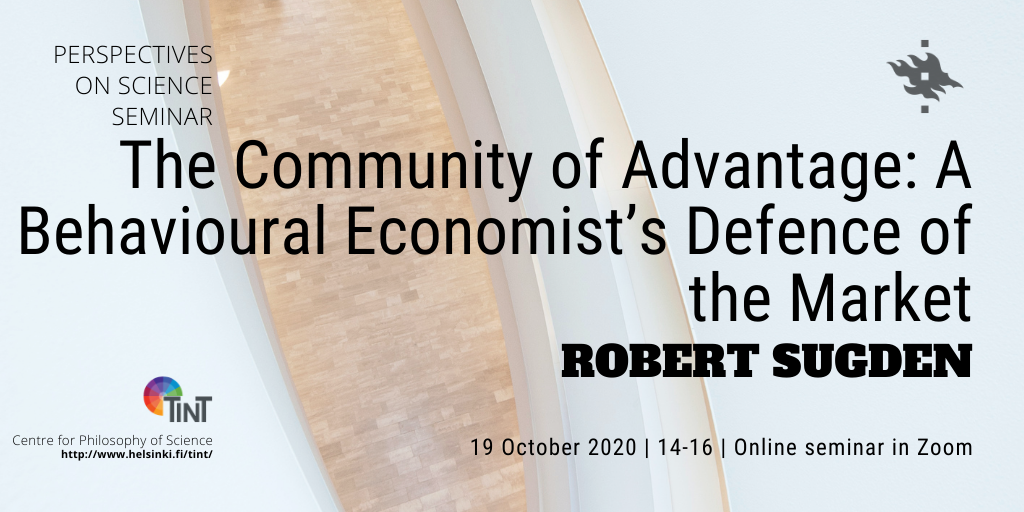At the Perspectives on Science seminar on Monday 12.10. Robert Sugden (University of East Anglia) will give a talk titled A Behavioural Economist’s Defence of the Market. The seminar will be organized as an online meeting in Zoom from 2-4 pm. Zoom is an online conference tool supported by University of Helsinki.
Perspectives on Science is a weekly research seminar which brings together experts from science studies and philosophy of science. It is organized by TINT, the Centre for Philosophy of Social Science at the University of Helsinki. More information about the seminar here.
To join the seminar please contact tatu.nuotio(a)helsinki.fi or kaisla.kareoja(a)helsinki.fi. Information about using Zoom can be found here.
Author bio:
Robert Sugden is Professor of Economics at the University of East Anglia in the United Kingdom. His research uses a combination of theoretical, experimental and philosophical methods to investigate issues in behavioural economics, normative economics, choice under uncertainty, the foundations of decision and game theory, the methodology of economics, and the evolution of social conventions. His current work focuses on the problem of reconciling behavioural and normative economics, and is synthesised in his recent book The Community of Advantage (Oxford University Press, 2018).
Abstract:

